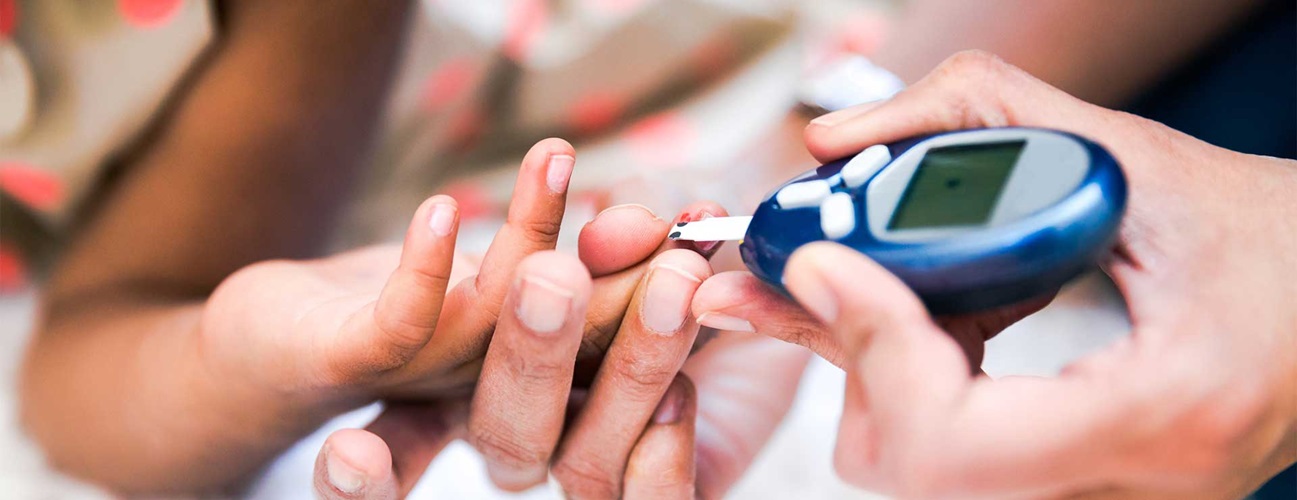In recent years, India has been witnessing an alarming increase in the number of children diagnosed with type 2 diabetes, a disease historically associated with adults. Traditionally, type 2 diabetes was predominantly observed in older individuals due to factors like sedentary lifestyles, poor dietary habits, and genetic predisposition. However, the shifting landscape of childhood health in India has led to a concerning surge in type 2 diabetes cases among young children. Let's explore the key factors contributing to this rise and emphasize the urgent need for preventive measures and awareness campaigns to address this health crisis.
Changing Lifestyle Habits and Obesity Epidemic:One of the primary factors contributing to the rise of type 2 diabetes cases among children in India is changing lifestyle habits. Rapid urbanization, increased access to technology, and the growing influence of Western culture have led to sedentary lifestyles among children. The shift from physical activities to screen time, coupled with a lack of exercise and outdoor play, has significantly contributed to the rise in obesity rates among children. Obesity, in turn, is a significant risk factor for the development of type 2 diabetes
Unhealthy Dietary Patterns: Another critical factor driving the surge in type 2 diabetes cases among children is the prevalence of unhealthy dietary patterns. Traditional Indian diets, which were once rich in whole grains, fruits, and vegetables, have been increasingly replaced by calorie-dense, nutrient-poor foods. The consumption of sugary drinks, processed snacks, and fast food has escalated, leading to excessive calorie intake, weight gain, and increased insulin resistance. Additionally, the lack of nutritional education and easy availability of unhealthy food choices contribute to this growing problem.
Genetic Predisposition: While lifestyle factors play a significant role, genetic predisposition also contributes to the rise in type 2 diabetes cases among children in India. Certain genetic variations make individuals more exposed to developing diabetes, especially when combined with environmental risk factors. It is essential to recognize that genetics alone cannot explain the surge in cases, but they interact with lifestyle factors, exacerbating the risk.
Socioeconomic Factors: factors such as lower income levels and limited access to healthcare, also play a role in the rising cases of type 2 diabetes among children. Families facing financial constraints often rely on inexpensive, calorie-dense foods that are unhealthy. Limited access to healthcare facilities and a lack of awareness about diabetes prevention and management further contribute to the problem, as early detection and timely intervention are crucial in mitigating the impact of the disease.
The Urgent Need for Preventive Measures and Awareness Campaigns: Addressing the rise of type 2 diabetes among children in India requires an approach involving various stakeholders. The government, healthcare professionals, schools, and families must work together to implement preventive measures and raise awareness about the importance of healthy lifestyles.
Key interventions could include:
1. Implementing nutritional education programs in schools to promote healthy eating habits from an early age.
2. Encouraging physical activity through sports and recreation programs in schools and communities.
3. Regulating the marketing and availability of unhealthy food options, particularly targeting children.
4. Strengthening healthcare infrastructure to ensure early diagnosis, regular screening, and timely intervention.
5. Empower families with knowledge about healthy food choices, portion control, and diabetes management. 6. Collaborating with non-governmental organizations and public-private partnerships to launch awareness campaigns to educate the public about the risks and prevention of type 2 diabetes.
The alarming rise in cases among children in India is a cause for grave concern. The interplay of changing lifestyle habits, unhealthy diets, genetic predisposition, and socioeconomic factors has created a perfect storm, leading to this emerging health crisis. Urgent action is required to address this issue comprehensively, involving education, policy changes, and collaborative efforts from all sectors. By prioritizing preventive measures and raising awareness, it is possible to curb the rising tide of type 2 diabetes among children and ensure a healthier future for India's younger generations.

 The alarming rise in cases among children in India is a cause for grave concern. The interplay of changing lifestyle habits, unhealthy diets, genetic predisposition, and socioeconomic factors has created a perfect storm, leading to this emerging health crisis.
The alarming rise in cases among children in India is a cause for grave concern. The interplay of changing lifestyle habits, unhealthy diets, genetic predisposition, and socioeconomic factors has created a perfect storm, leading to this emerging health crisis.























.jpg)









